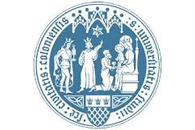How an Arabic Philosopher brought Aristotle to the West
A research project on Averroes at the University of Cologne’s Thomas Institute will receive over 10 million euros in funding over the next 25 years
The writings of Averroes (1126-1198) created a stir in the Arabic, Latin and Hebrew world. The Arabic philosopher, who is also known by the name Ibn Rushd, is among the most important medieval writers. For centuries, his Aristotle commentaries were must-reads for scholars of different disciplines. Like no other philosopher, he thus made the works of Aristotle accessible to the western world.
In a substantially funded long-term project, researchers at the University of Cologne’s Thomas Institute now want to reconstruct as closely as possible the original work of the philosopher and make selected texts accessible in a critical edition. As one of two new research projects, “Averroes (Ibn Rushd) and the Arabic, Hebrew, and Latin Reception of Aristotle’s Natural Philosophy” was accepted into the programme of the North Rhine-Westphalian Academy of Sciences, Humanities and the Arts. The project, headed by Professor Andreas Speer, the director of the Thomas Institute, and David Wirmer, assistant professor for Arabic and Jewish philosophy, will be launched in 2016 and run for the next 25 years, with a total funding of 10.6 million euros. Both applicants see the long funding period as an extraordinary chance: “In the next 25 years we have the opportunity to make Cologne the most stable centre of Averroes research – also internationally,” Speer emphasizes.
The involved researchers want to compile a complete critical edition of all of Averroes’s commentaries on natural philosophy. These texts are regarded as an intersection of philosophical discussions in three entirely different cultures. In this context, the highly complex linguistic transmission of the philosopher’s work poses a challenge: it circulated simultaneously in Arabic, Hebrew and Latin.
Some translations transmit partly revised versions by the author that did not survive in the Arabic original. By taking into account the three different language traditions, the researchers also want to draw a more precise picture of the philosopher’s intellectual development. The team headed by Speer and Wirmer profits from the unique research infrastructure at the Thomas Institute: since 2010, scholars at the institute have compiled writings by Averroes and made them accessible in digital form in the Digital Averroes Research Environment (DARE). This digital platform will now also be used for various project steps.
Contact:
Professor Andreas Speer
Assistant Professor David Wirmer
Universität zu Köln
Thomas Institute
Phone: +49 221 470 2309
E-Mail: thomas-institut(at)uni-koeln.de
Homepage: http://www.thomasinstitut.uni-koeln.de
